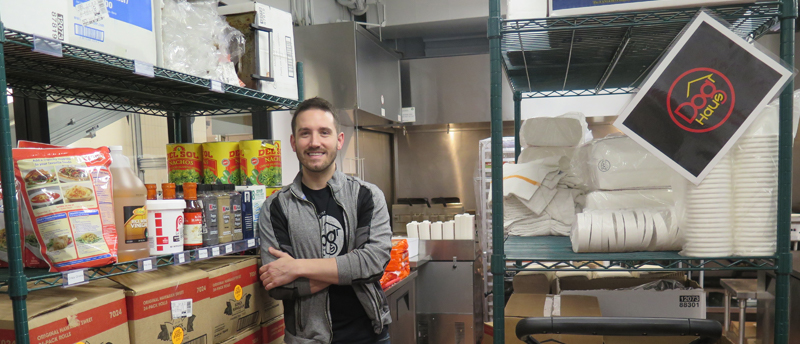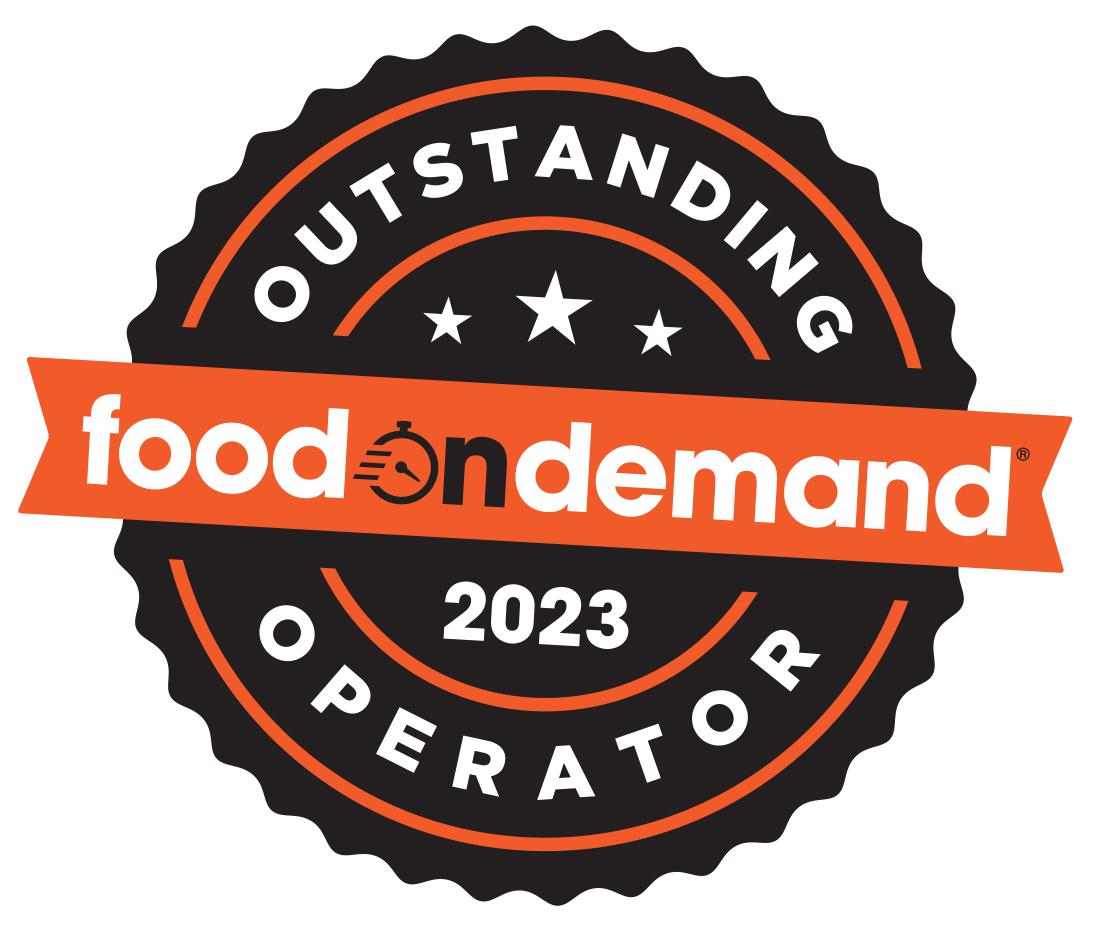The conveyor belt may be the neatest thing at Kitchen United’s first Illinois ghost kitchen within the River North neighborhood in Chicago. Restaurant operators place their packaged orders and they’re whisked away overhead to get to the waiting delivery drivers, and then off to hungry diners.
Jesse Koontz, the franchisee for Dog Haus in Chicago who started a delivery-only operation two weeks ago at the new Kitchen United facility, showed off that feature in a tour last week, but he also listed a couple of other nice aspects of the arrangement.
For one, Kitchen United supplies all the equipment to restaurant operators, except for proprietary items. In Dog Haus’s case that’s a steamer that brings hotdogs to 140 degrees before they’re finished on a grill, and an over-easy egg maker that cooks six at a time for Dog Haus burgers.
For two, all orders come in on an Ordermark display no matter which app the customer is using, eliminating the “tablet hell” operators experience when they have a separate tablet for each delivery platform. Ordermark is the brainchild of Alex Canter, the fourth-generation restaurateur of the famous Canter’s Deli in Los Angeles. At the Food On Demand Conference in April, Canter said he invented the system when trying to get Canter’s Deli into the mobile ordering world.
For three, and perhaps the best of all: Kitchen United’s staff does the dishes overnight for all of its restaurant tenants. “They want us as a restaurant to focus” on food preparation and packaging, Koontz said.
He opened his Kitchen United 350-square-foot space two weeks ago and signed a six-month lease for $6,500 a month in rent, but with the first two months free and the subsequent four months half off.
The new Kitchen United facility is in a hulking but nondescript 19,000-square-foot building with no windows and only one teeny sign on the outside announcing what it is. The GM happened to be at the door when I arrived, and after telling a confused delivery driver where he could pick up his order (on the other side of the building, also without a sign, but these are early days) he rapidly escorted me through the labyrinth, up an elevator and right then left, a series of turns that I could not re-create easily on my way out.
Guests need to sign in using an electronic kiosk in the upper-floor waiting area, the doors to which are locked to prevent anyone unauthorized from getting in. A common space lined with a utilitarian stainless steel bar houses busy-looking people on their laptops. The Dog Haus space is small, just 350 square feet, but with a place for everything and one employee ready to start filling orders at 11 a.m. The Chick-fil-A space is five times the size, with a half-dozen people gearing up for the delivery day, including a couple of bosses with their clipboards.
The outdoor space is a work in progress, with a small parking lot behind the building but plans on the wall showing how it will be transformed into an amenity-filled place for drivers to gather. The community center next door, with its large grassy field and tons of activities on tap, seems ideal for the 50 picnic tables Kitchen United would like to place there via a hoped-for partnership, in hopes that families will then walk a few steps to use the outside kiosks to place their orders, again a not very visible component at this early stage but perhaps to be beefed-up soon.
The neighborhood, River North on the corner of Chicago and Sedgwick, is dense, with 550,000 people within its borders but the few chain restaurants like McDonald’s, Chick-fil-A and Starbucks a good 20 minutes away to the east, near the bustling Michigan Avenue. Koontz plans to use the Kitchen United location as an “escape valve” of sorts for his Lincoln Park restaurant near the DePaul University campus to the north, where eight drivers at a time might be crowded into the store just when hungry diners are there, too.
Chick-fil-A is also up and running at the facility, with a space about five times bigger than Dog Haus’s. Urbanbelly, a local sensation, is up and running, too, with others slated to come in soon.
Koontz says he likes the mix of national brands and local favorites in the same place, and believes the nearby Groupon headquarters, for example, with 9,000 employees, will provide a fruitful customer base.
Kitchen United, backed by Google Ventures, started with one test ghost kitchen in Pasadena, California, and plans up to 19 more openings across the country this year, including a second location in Chicago to open soon. Dog Haus plans to open in all of the ghost kitchens.




